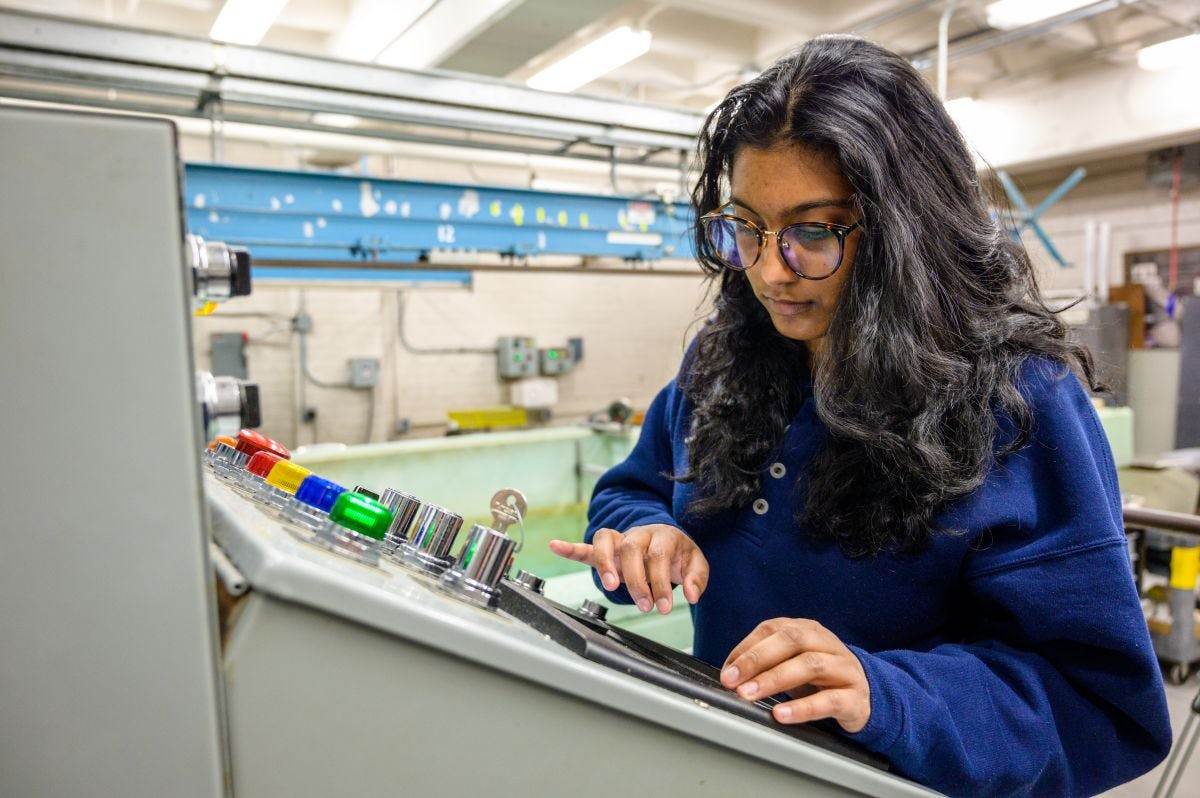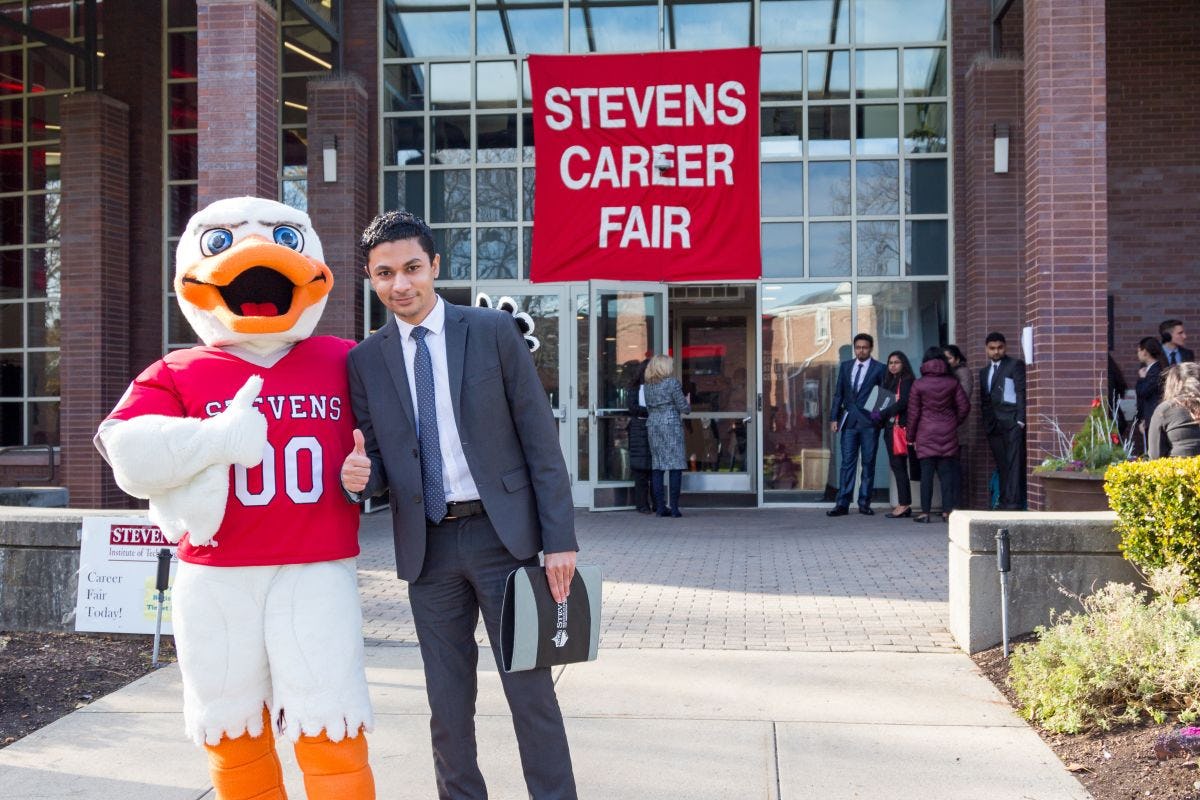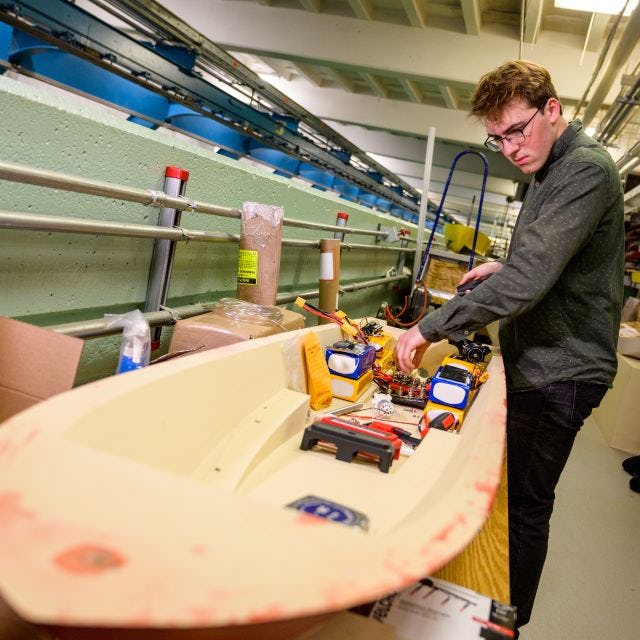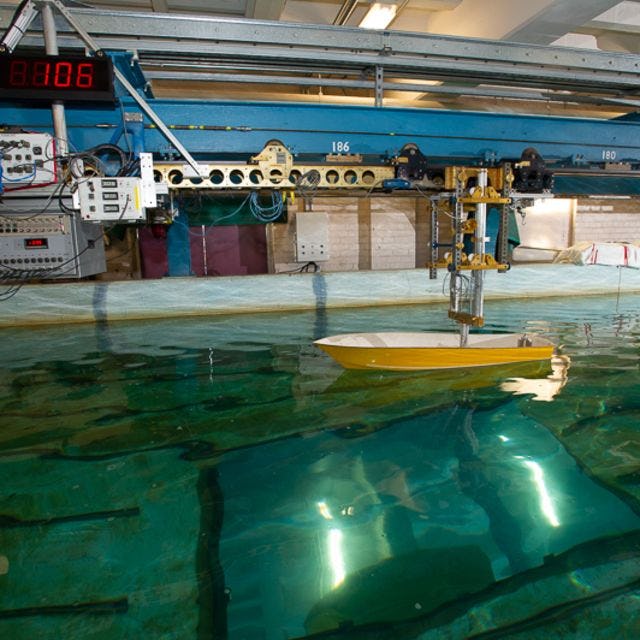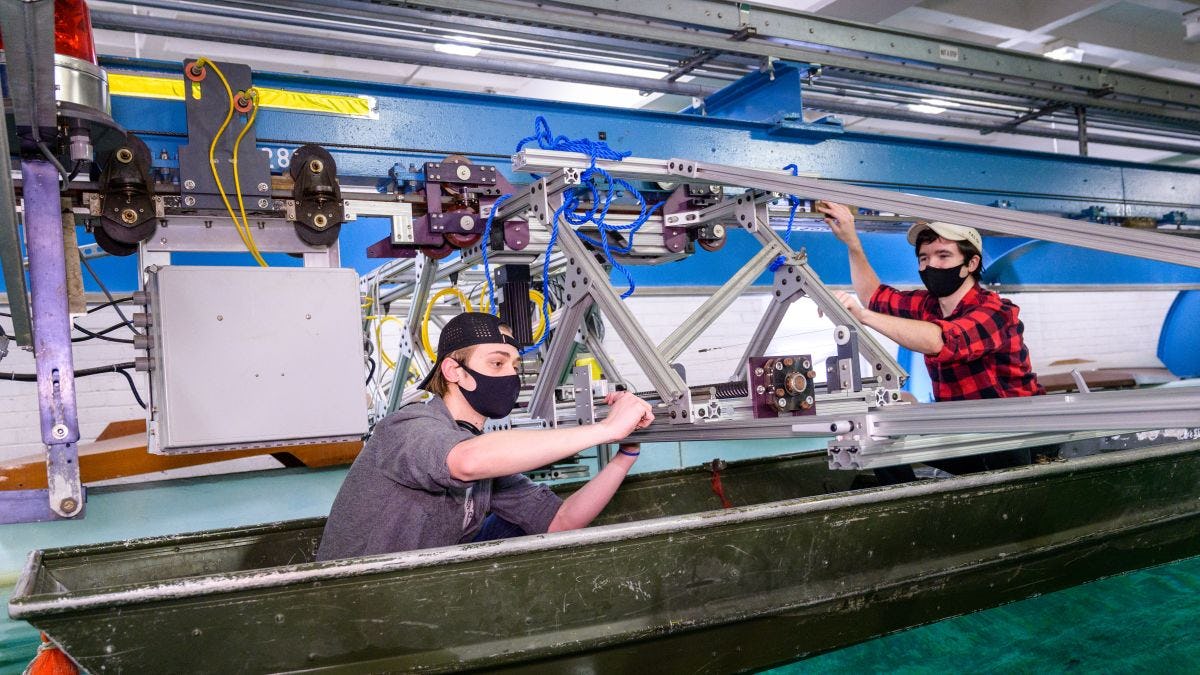
Bachelor's Degree in Engineering - Naval Engineering Concentration
Program Details
Degree
Bachelor of EngineeringAvailable
On campusAt Stevens, you’ll develop the foundational skills today’s naval engineers need in one of the nation’s highly regarded engineering programs.
Deeply embedded in marine and oceanographic engineering, the naval engineering concentration of our highly regarded engineering program focuses on the study of surface and subsurface ships, aircraft, ocean structures and shore facilities used by the U.S. Navy.
The program focuses on development of physical science, mathematics and modeling skills as well as specialized knowledge in naval architecture, marine engineering, systems engineering and environmental engineering. Expert professors and state-of-the-art facilities train you to design, build, operate and maintain ships and other waterborne vessels and oceanographic technology.
Located across the Hudson River from New York City, the epicenter of ship design and harbor operations, Stevens collaborates with government and private companies in design and testing, ensuring that you get the technical knowledge and practical experience necessary to thrive in the professional world.
You will also have access to the renowned Davidson Laboratory, a nationally-recognized center for maritime design research that attracts external organizations to use its towing tank and wave tank.
Areas of Focus
Naval architecture
Ship and hull design
Propulsion systems
Effects of ocean properties on ship transport
Homeland security and waterfront defense technology
The Stevens Advantage: Hands-On Learning, Real World Experience
At Stevens, you’ll learn to think like an engineer. Our design-focused curriculum features a hands-on course every semester that will instill you with broad, foundational knowledge, the complete fundamentals of engineering, and entrepreneurial thinking. Learn more about what makes an engineering education from Stevens a unique experience:
The Design Spine: a unique, design-focused, hands-on course every semester that incorporates entrepreneurial thinking and experiential learning, culminating with Senior Design, a team capstone project working on prototypes for real business problems, potentially in collaboration with a real company
Innovation Expo: an exciting design and entrepreneurship competition where students showcase their senior design prototypes and pitch business ideas
Engineering Cooperative Education Program: nearly 30% of all engineering students participate in Stevens’ Cooperative Education Program where you get on-the-job experience working for real companies
State-of-the-Art Research Labs and Facilities: build, tinker and test your designs in Stevens' MakerCenter, Prototype and Object Fabrication Lab, or numerous other research facilities
Undergraduate Research Opportunities: our research-oriented curriculum gives you in-the-lab experience while you're still an undergraduate student
More opportunities for Stevens undergraduate students include:
Double count undergraduate course credits toward a graduate degree and earn your master's faster – in just five years through Stevens' Accelerated Master's Program >
See what it's like to be a civil, environmental, or naval engineer at Stevens by visiting the links below.
An ABET Accredited Program
The Bachelor of Engineering in Engineering program is accredited by the Engineering Accreditation Commission of ABET, https://www.abet.org, under the commission’s General Criteria and the Program Criteria for Engineering, General Engineering, Engineering Physics, Engineering Science and Similarly Named Engineering Programs.
Mission
The Bachelor of Engineering in Engineering program's mission is to provide a broad-based education and depth within a selected concentration to prepare students in technical and scientific fundamentals that will enable them to have a substantial impact in a specific technology area.
Program Educational Objectives
The engineering program has established the following educational objectives:
Graduates of our program will be recognized by their peers as innovators and leaders in their field by leveraging their strong technical basis to continuously increase their skills and knowledge in their area of expertise.
Graduates of our program will have a positive impact on their workplace through multidisciplinary collaboration, teamwork and leadership.
Graduates of our program effectively navigate important contextual factors in their careers, including the historical, regulatory, political, policy, economic, ethical and public relations aspects of problems in various engineering disciplines.
Student Outcomes
By the time of graduation, students in the engineering program will have:
An ability to identify, formulate, and solve complex engineering problems by applying principles of engineering, science, and mathematics
An ability to apply engineering design to produce solutions that meet specified needs with consideration of public health, safety, and welfare, as well as global, cultural, social, environmental, and economic factors
An ability to communicate effectively with a range of audiences
An ability to recognize ethical and professional responsibilities in engineering situations and make informed judgments, which must consider the impact of engineering solutions in global, economic, environmental, and societal contexts
An ability to function effectively on a team whose members together provide leadership, create a collaborative and inclusive environment, establish goals, plan tasks, and meet objectives
An ability to develop and conduct appropriate experimentation, analyze and interpret data, and use engineering judgment to draw conclusions
An ability to acquire and apply new knowledge as needed, using appropriate learning strategies
A fundamental knowledge and an appreciation of the technology and business processes necessary to nurture new technologies from concept to commercialization
Putting You on Track for Professional Success
Engineering Career Opportunities
The engineering bachelor’s program with a concentration in naval engineering develops in-demand knowledge and skills to put you on track for career success. Naval architecture and marine engineering is a top-earning degree with an average salary of $109,121 per year national average four years after graduation.
Career opportunities include:
Naval Architecture
Ship Surveying
Vessel Construction and Repair
Design Consulting
Marine Transport and Energy
Offshore Wind Farms and Energy
Marine Science and Oceanography
Companies Hiring Naval Engineers:
Gibbs & Cox, Navatek, Lockheed-Martin, Naval Surface Warfare Center - Carderock, Austal, Metal Shark Boats, Viking Yachts, Chevron
A Tech Forward Education
Undergraduate Programs Facts & Statistics
Related Programs
Bachelor's Degree in Civil Engineering
Learn the versatile skill set needed to build a successful career in civil engineering.
Bachelor's Degree in Environmental Engineering
Hone the skills and knowledge necessary to find solutions to today’s most pressing environmental issues.
Bachelor Degree in Mechanical Engineering
Get the in-depth knowledge and design skills you need for a successful career in engineering from the first university in the U.S. to offer a mechanical engineering degree.

